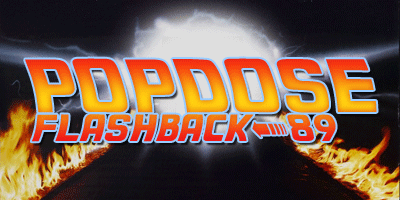
 It wasn’t their best album. It wasn’t even much like what people consider their best album. Yet the mighty Canadian power trio Rush found themselves on Atlantic Records with a producer known mostly for working with The Fixx and Tina Turner. It was in many ways a fresh start and, true to the band’s nature, they made the most of it.
It wasn’t their best album. It wasn’t even much like what people consider their best album. Yet the mighty Canadian power trio Rush found themselves on Atlantic Records with a producer known mostly for working with The Fixx and Tina Turner. It was in many ways a fresh start and, true to the band’s nature, they made the most of it.
Lyricist/drummer Neil Peart always had a knack for wordplay, but quite often that was the lyrical crux of the song, with no specific aim attached. On Presto, the seeds of his political nature were finally starting to bloom. “War Paint” fleshes out the angst of teenage life in a hostile adult world, a direct graduation from “Subdivisions.” The very specific “Red Tide” spurs on an ecology-mindedness the listener kind of knew was there but couldn’t precisely summarize. The kickoff “Show Don’t Tell” went to number #1 on the rock charts.
Perhaps it was producer Rupert Hine’s pop polish that made everything so much more palatable than their hard-rock roots, but this is exactly what you get – a great pop album. Alex Lifeson’s guitar is still powerful but not “tear-the-roof-off,” especially with the chorus pedal so often processing the sound. Geddy Lee still plays the bass like few can, but it’s lower in the mix, and the keyboards are higher. The album has the dubious distinction of holding one of the band’s worst songs, the craptacular “Scars,” but also contains two of their prettiest offerings. First, the title track, which illustrates a person’s desire to make everything better in the face of being completely unable to do so. The word “presto” is never uttered in the song, but the key lyric, “If I could wave my magic wand,” really crystallizes that harsh middle ground between intention and ability. It also touches a major Peart theme – no magician or rock star is going to make your miracle happen for you. You must wrestle with the responsibility of your own life.
The closing “Available Light” does what the band does best so often: close their albums with a hopeful anthem, although this is tempered a bit. “I want to look at life in the available light” indicates a desire to see reality, to see what’s really there, as pretty or ugly as that might be, without the artifice and propaganda. Aside from “Scars,” the songs are easy on the ears and sound at home in their 1989 surroundings. Much like some of their prog, um, counterparts such as Yes and a reconstituted ELP (with Cozy Powell), Rush was reconciling the new sound with old ideas. Unlike them, Rush never made it sound forced of calculated. This was a band becoming something different over time and there wasn’t anything wrong with that.
[kml_flashembed movie="http://www.youtube.com/v/nOoVHAuhV28" width="425" height="350" wmode="transparent" /]
The most important thing Presto did was to prepare the way for what would be one of the band’s biggest hits, and most well-remembered popular accomplishments, Roll The Bones.
Presto peaked at #16 on the Billboard 200.




Comments